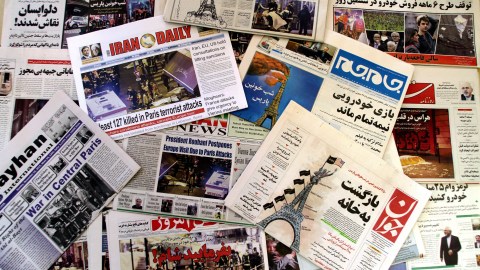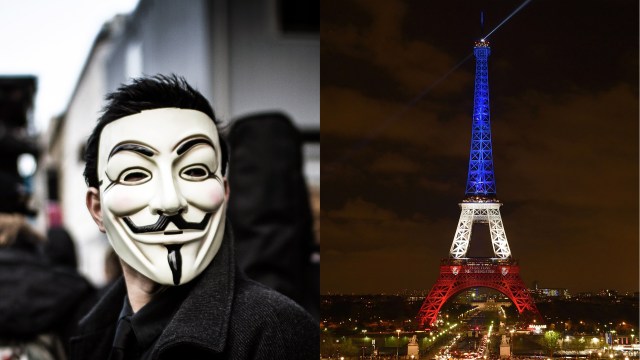The Reason Paris Got More Media Coverage than Lebanon and Nigeria — Even in Iran

The world was rocked by the terrorist attacks that targeted Paris on Friday. The outpouring of support and media coverage was swift and exhaustive. Facebook allowed users to mark themselves as “safe” in the social network while encouraging its users to add a French flag filter to their profile picture to show their support for the city of lights. From first-person accounts to political editorials, the weekend was filled with news stories about the attacks, flooding social media networks.
And almost instantly, criticisms arose about how the Paris attacks were receiving privileged attention not usually afforded to similar atrocities outside the West.
Most of the outrage was directed at the way the media was not covering bombings in Beirut that had happened just the day before Paris. The New York Times even published a piece on precisely this topic just this weekend, perhaps paradoxically making and disproving the point of the article’s headline: “Beirut, Also the Site of Deadly Attacks, Feels Forgotten.”
“Almost instantly, criticisms arose about how the Paris attacks were receiving privileged attention not usually afforded to similar atrocities outside the West.”
More improbable, perhaps, were the various news stories about a bombing in Nigeria that began to make the rounds on social media. Why, users were asking, were the lives of those in the Middle East and Africa not being treated with the same grief-stricken anger and outrage as the deaths in Paris?
What few people seemed to notice was that the Nigerian attacks (which claimed an estimated 2,000 lives) had happened back in January, its coverage following in the wake of the Charlie Hebdo attacks in the French capital. That is, stories about how the Nigerian bombings coverage had differed from those in Paris were almost a year old.
(Sadly, Nigeria was victim to another attack on Tuesday, killing 30. The media, perhaps spurred by the recent criticisms, has been quick to push its reporting.)

A picture taken on October 23, 2015, in Maiduguri, northeast Nigeria, shows people standing in a mosque following a suicide bombing. At least 28 people were killed in a suicide bombing at a mosque in Maiduguri, northeast Nigeria, on Friday, raising fresh security concerns after a wave of similar attacks. Maiduguri has now been hit six times this month, killing a total of 76 people, according to an AFP tally, underscoring an increased risk to civilians after similar strikes in neighbouring states and near the capital, Abuja.
Photo credit: STRINGER/AFP/Getty Images
Yet, as Max Fisher notes, the issue of media coverage of Paris versus Beirut (or, earlier in the year, Nigeria) may not have to do with news outlets as much as with readers and their social media sharing habits: “What’s driving people to scold media outlets for not covering an event they have in fact covered extensively?”
The news stories, he points out, were there; they just weren’t being disseminated and read with the urgency and empathy that characterized the media narratives surrounding Paris. That shouldn’t detract from the necessary questioning of why acts of terror in non-Western nations are often ignored, but it should also be an opportunity to reflect on the very ways we consume and engage in discussion of news around the world.
Top photo: The great pyramid of Khufu is illuminated with the French, Lebanese and Russian flags in Giza, outskirt of Cairo on November 15, 2015, during a ceremony in homage to the victims of attacks in Paris and Beirut and the Sinai plane crash. (KHALED DESOUKI/AFP/Getty Images)
—
Manuel is a NYC-based writer interested in all things media and pop culture. He’s a regular contributor to The Film Experience and Remezcla. His work has been featured in Mic News, Film Comment, and Model View Culture. He also has a PhD but hates bragging about it. www.mbetancourt.com





